Mental Disorder Guide: Types & Treatment Types
At Robles Ranch, we believe that education and awareness about mental disorders are the first steps toward healing and recovery.
Mental Disorder Guide: Types & Treatment Types
At Robles Ranch, we believe that education and awareness about mental disorders are the first steps toward healing and recovery.
Mental health challenges affect millions of people worldwide, yet many individuals and families struggle to understand what constitutes a mental disorder and how to seek appropriate help. At Robles Ranch, we believe that education and awareness are the first steps toward healing and recovery. This comprehensive guide explores the various types of mental disorders, their prevalence, and the treatment options available to help individuals reclaim their mental wellness.
Understanding mental disorders is crucial not only for those who may be experiencing symptoms but also for their loved ones who want to provide support. Mental health conditions are medical conditions that affect a person’s thinking, feeling, mood, and behavior, and they can significantly impact daily functioning and quality of life.
What Is A Mental Disorder?
A mental disorder, also known as a mental health condition or mental illness, is a behavioral or mental pattern that causes significant distress or impairment in personal functioning.
Mental disorders are characterized by a combination of abnormal thoughts, emotions, behaviors, and relationships with others that persist over time and interfere with daily life activities.
Mental disorders are not simply a result of personal weakness, lack of character, or poor upbringing.
Mental disorders are legitimate medical conditions that arise from complex interactions between biological, psychological, and environmental factors. These conditions can affect anyone, regardless of age, gender, race, religion, or socioeconomic status.
It’s important to understand that mental disorders exist on a spectrum of severity.
Some individuals may experience mild symptoms that have minimal impact on their daily functioning, while others may face severe symptoms that significantly impair their ability to work, maintain relationships, or care for themselves. The key distinguishing factor is whether the symptoms cause clinically significant distress or impairment in important areas of functioning.
Mental health professionals use standardized diagnostic criteria, such as those found in the Diagnostic and Statistical Manual of Mental Disorders (DSM-5), to diagnose mental disorders. These criteria help ensure accurate diagnosis and appropriate treatment planning.
Types of Mental Disorders
Mental disorders encompass a wide range of conditions that affect mood, thinking, and behavior. While each disorder has its unique characteristics and symptoms, they all share the common thread of significantly impacting an individual’s ability to function in daily life. Understanding the different categories of mental disorders can help individuals and families recognize when professional help may be needed and what types of treatment might be most beneficial.
Mood Disorders
Mood disorders are characterized by significant disturbances in a person’s emotional state that persist over time and interfere with daily functioning. These disorders involve periods of excessive sadness, elevated mood, or fluctuations between emotional extremes that are more severe and persistent than normal mood variations.
Major Depressive Disorder is one of the most common mood disorders, characterized by persistent feelings of sadness, hopelessness, and loss of interest in activities that were once enjoyable. Individuals with depression may experience changes in appetite and sleep patterns, difficulty concentrating, fatigue, feelings of worthlessness or guilt, and in severe cases, thoughts of death or suicide. Depression can range from mild to severe and may occur as single episodes or recurrent episodes throughout a person’s life.
Bipolar Disorder involves extreme mood swings that include emotional highs (mania or hypomania) and lows (depression). During manic episodes, individuals may feel euphoric, have increased energy, engage in risky behaviors, and have decreased need for sleep. These episodes alternate with periods of depression, creating a cycle that can be highly disruptive to personal and professional relationships. bipolar disorder treatment programs designed to help individuals manage these complex mood fluctuations.
Persistent Depressive Disorder (Dysthymia) is a chronic form of depression where symptoms are less severe than major depression but last for longer periods, typically at least two years. While the symptoms may not be as intense, they can significantly impact quality of life and functioning over time.
Seasonal Affective Disorder (SAD) is a type of depression that occurs at specific times of the year, most commonly during fall and winter months when there is less natural sunlight. Symptoms typically improve during spring and summer months.
Postpartum Depression affects some women after childbirth and is characterized by severe depression, anxiety, and exhaustion that may make it difficult for new mothers to complete daily care activities for themselves or their babies.
Trauma Disorders
Trauma disorders develop following exposure to or witnessing traumatic events that involve actual or threatened death, serious injury, or sexual violence. These disorders can significantly impact an individual’s ability to function in daily life and maintain healthy relationships.
Post-Traumatic Stress Disorder (PTSD) is perhaps the most well-known trauma disorder, characterized by intrusive memories, nightmares, flashbacks, and severe emotional distress related to the traumatic event. Individuals with PTSD may also experience avoidance of trauma-related triggers, negative changes in thoughts and mood, and alterations in arousal and reactivity such as hypervigilance, exaggerated startle response, and sleep disturbances. Our specialized PTSD treatment programs provide comprehensive care for individuals struggling with trauma-related symptoms.
Acute Stress Disorder shares many symptoms with PTSD but occurs immediately after a traumatic event and lasts for a shorter duration, typically between three days and one month following the trauma.
Complex PTSD may develop in individuals who have experienced prolonged, repeated trauma, particularly during childhood. This condition includes the core symptoms of PTSD along with additional difficulties in emotional regulation, self-concept, and interpersonal relationships.
Adjustment Disorders occur when an individual has difficulty coping with a stressful life event or change, resulting in emotional or behavioral symptoms that are more severe than would normally be expected and significantly impair functioning.
Anxiety Disorders
Anxiety disorders are characterized by excessive fear, worry, and related behavioral disturbances that persist over time and interfere with daily activities. While anxiety is a normal human emotion, anxiety disorders involve anxiety that is disproportionate to the situation and causes significant distress or impairment.
Generalized Anxiety Disorder (GAD) involves persistent and excessive worry about various aspects of life, such as work, health, family, or finances. The worry is difficult to control and is accompanied by physical symptoms such as restlessness, fatigue, difficulty concentrating, muscle tension, and sleep disturbances.
Panic Disorder is characterized by recurrent panic attacks, which are sudden episodes of intense fear or discomfort that reach peak intensity within minutes. Panic attacks involve physical symptoms such as heart palpitations, sweating, trembling, shortness of breath, and feelings of impending doom or loss of control.
Social Anxiety Disorder involves intense fear or anxiety in social situations where the individual may be scrutinized by others. This fear often leads to avoidance of social situations and can significantly impact personal and professional relationships.
Specific Phobias are characterized by intense, irrational fear of specific objects or situations, such as flying, heights, animals, or medical procedures. The fear is disproportionate to the actual danger posed and leads to avoidance behaviors.
Agoraphobia involves fear of situations where escape might be difficult or help unavailable in case of panic symptoms, leading to avoidance of places such as public transportation, open spaces, or crowds.
Personality Disorders
Personality disorders are characterized by enduring patterns of inner experience and behavior that deviate markedly from cultural expectations, are pervasive and inflexible, and lead to distress or impairment. These patterns typically begin in adolescence or early adulthood and remain stable over time.
Borderline Personality Disorder is characterized by instability in interpersonal relationships, self-image, and emotions, along with marked impulsivity. Individuals may experience intense fear of abandonment, unstable relationships that alternate between idealization and devaluation, identity disturbance, and recurrent suicidal behaviors or self-harm.
Narcissistic Personality Disorder involves a pervasive pattern of grandiosity, need for admiration, and lack of empathy. Individuals may have an inflated sense of self-importance, believe they are special or unique, and have difficulty recognizing the needs and feelings of others.
Antisocial Personality Disorder is characterized by a pattern of disregard for and violation of the rights of others. This may include deceitfulness, impulsivity, aggressiveness, reckless disregard for safety, and lack of remorse for harmful actions.
Avoidant Personality Disorder involves a pattern of social inhibition, feelings of inadequacy, and hypersensitivity to negative evaluation. Individuals may avoid social interactions due to fear of criticism or rejection.
Obsessive-Compulsive Personality Disorder is characterized by preoccupation with orderliness, perfectionism, and control at the expense of flexibility and efficiency.
Schizophrenia Spectrum Disorders
Schizophrenia spectrum disorders are characterized by abnormalities in one or more of the following areas: delusions, hallucinations, disorganized thinking, grossly disorganized or abnormal motor behavior, and negative symptoms such as reduced emotional expression or motivation.
Schizophrenia is a chronic mental disorder that affects how a person thinks, feels, and behaves. Symptoms are typically categorized as positive symptoms (hallucinations, delusions, disorganized speech), negative symptoms (reduced emotional expression, decreased motivation), and cognitive symptoms (problems with attention, memory, and executive functioning).
Brief Psychotic Disorder involves sudden onset of psychotic symptoms that last at least one day but less than one month, with eventual return to normal functioning.
Schizophreniform Disorder has the same symptoms as schizophrenia but lasts between one and six months.
Schizoaffective Disorder combines symptoms of schizophrenia with major mood episodes, creating a complex condition that requires specialized treatment approaches.
Delusional Disorder is characterized by one or more delusions for at least one month, but functioning is not significantly impaired aside from the impact of the delusions.
Other Types of Mental Disorders
Some mental disorders don’t fit into a specific category. These can also include disorders or issues that commonly co-occur with other mental disorders.
Sleep disorders are common among people with mental health disorders. This is because sleep disturbances are a symptom of disorders like depression, anxiety, and PTSD. When left untreated, disrupted sleep can significantly impact your ability to cope with stress and other symptoms.
On the other hand, sleep disorders can cause mental health symptoms. For example, if you aren’t getting enough rest, you may struggle with fatigue and a low mood—much like depression.
Suicidal ideation is a distressing mental health symptom. Any mental health disorder can lead to suicidal thoughts and feelings when left untreated.
How Common Are Mental Disorders?
Mental disorders are remarkably common, affecting millions of individuals and families across the United States and worldwide. According to the National Alliance on Mental Illness (NAMI), approximately 1 in 5 adults in the United States experiences mental illness in a given year.
The prevalence of mental disorders highlights the importance of reducing stigma and increasing access to quality mental health care. Some specific statistics include:
- Major depressive disorder affects approximately 8.5% of adults in the United States each year
- Anxiety disorders are the most common mental health condition, affecting about 18% of the adult population annually
- Bipolar disorder affects approximately 2.8% of adults in the United States
- PTSD affects about 3.5% of adults in the United States each year
- Schizophrenia affects approximately 1% of the global population
These statistics demonstrate that mental health conditions are not rare occurrences but rather common human experiences that require understanding, compassion, and appropriate treatment. The high prevalence of mental disorders also underscores the need for comprehensive mental health services and the importance of early intervention and treatment.
Recommended: California Mental Health Statistics in 2025
How Are Mental Disorders Treated?
Mental health treatment has evolved significantly over the past several decades, with numerous evidence-based approaches now available to help individuals recover and thrive. The most effective treatment plans are typically individualized and may combine multiple therapeutic approaches based on the specific disorder, severity of symptoms, and individual preferences and needs.
Psychotherapy
Psychotherapy, also known as talk therapy, is a cornerstone of mental health treatment. Various forms of psychotherapy have been proven effective for different mental disorders, including Cognitive Behavioral Therapy (CBT), Dialectical Behavior Therapy (DBT), Eye Movement Desensitization and Reprocessing (EMDR), and psychodynamic therapy. These therapeutic approaches help individuals understand their thoughts, feelings, and behaviors while developing healthy coping strategies and problem-solving skills.
Psychiatry
Psychiatric medication can be an important component of treatment for many mental disorders. Medications such as antidepressants, mood stabilizers, antipsychotics, and anti-anxiety medications can help manage symptoms and improve quality of life. Psychiatric treatment should always be supervised by qualified medical professionals who can monitor effectiveness and adjust medications as needed.
Holistic Therapies
Holistic therapies complement traditional treatment approaches by addressing the whole person, including physical, emotional, and spiritual well-being. These may include biosound therapy, mindfulness meditation, yoga, art therapy, music therapy, animal-assisted therapy (AAT), and nutrition counseling. Holistic approaches recognize that mental health is interconnected with overall wellness and can enhance the effectiveness of traditional treatments.
Residential Treatment
Residential treatment programs provide intensive, comprehensive care for individuals with severe mental health conditions or those who have not responded to outpatient treatment. Our residential treatment program offers 24-hour support in a therapeutic environment where individuals can focus entirely on their recovery without the distractions and stressors of daily life. Residential treatment typically includes individual therapy, group therapy, psychiatric services, and various therapeutic activities.
Frequently Asked Questions
Recognizing when a loved one needs mental health support can be challenging, as symptoms may develop gradually or be mistaken for temporary stress. Key warning signs include persistent changes in mood, behavior, or functioning that last for several weeks or months. Look for significant changes in sleep patterns, appetite, energy levels, or social withdrawal from family and friends.
Behavioral changes such as increased substance use, reckless behavior, or difficulty fulfilling responsibilities at work or school may also indicate a need for professional help. If your loved one expresses feelings of hopelessness, talks about death or suicide, or exhibits extreme mood swings, it’s important to seek immediate professional assistance.
Trust your instincts as someone who knows your loved one well. If you notice concerning changes that don’t seem to improve over time, or if your loved one expresses that they’re struggling, encourage them to speak with a mental health professional. Approach the conversation with compassion, avoid judgment, and offer your support throughout the process.
Yes, mental health treatment is protected by strict confidentiality laws, including the Health Insurance Portability and Accountability Act (HIPAA). Mental health professionals are legally and ethically bound to protect the privacy of their clients and cannot share information about treatment without explicit written consent from the client.
The cost of mental health treatment varies significantly depending on the type and intensity of services needed, geographic location, and whether treatment is provided in-network or out-of-network with insurance plans. Many insurance plans are required to provide mental health benefits that are equivalent to medical benefits, thanks to the Mental Health Parity and Addiction Equity Act.
Begin Mental Health Treatment Today
If you or a loved one is struggling with a mental health disorder and seeking a balanced approach to recovery, our residential treatment programs in California may be the right choice.
Find Help For Mental Disorders Today
Paso Robles, CA in San Luis Obispo County
If you or a loved one is struggling with a mental health condition, know that help is available and recovery is possible.
Don’t let mental health challenges define your life or the life of someone you care about. Contact Robles Ranch today to learn more about our treatment programs and how we can help you or your loved one begin the journey toward recovery and renewed hope. Every step toward seeking help is a step toward a brighter future.
- Confidential Telephone Assessment
- Free Insurance Verification & Check
- Concierge Travel Assistance & Arrangements
- Pick Up from Local Airports or Designated Locations
- Family Support & Guidance
Areas We Serve
We Help Clients Make Their Lives Better
Trustindex verifies that the original source of the review is Google. Will, and the whole team of pysch techs are experienced and compassionate. I have been to the facility a few times and met their whole team, love what they are doing for the community! I wish there were 8 more facilities like this in the area!!Trustindex verifies that the original source of the review is Google. This beautiful serene retreat is everything you need. Settled in the beautiful town of Paso Robles makes it even more special. The staff was another plus here they were awesome!!Trustindex verifies that the original source of the review is Google. Would definitely recommend Robles Ranch!! Cheree & her team are awesome.















